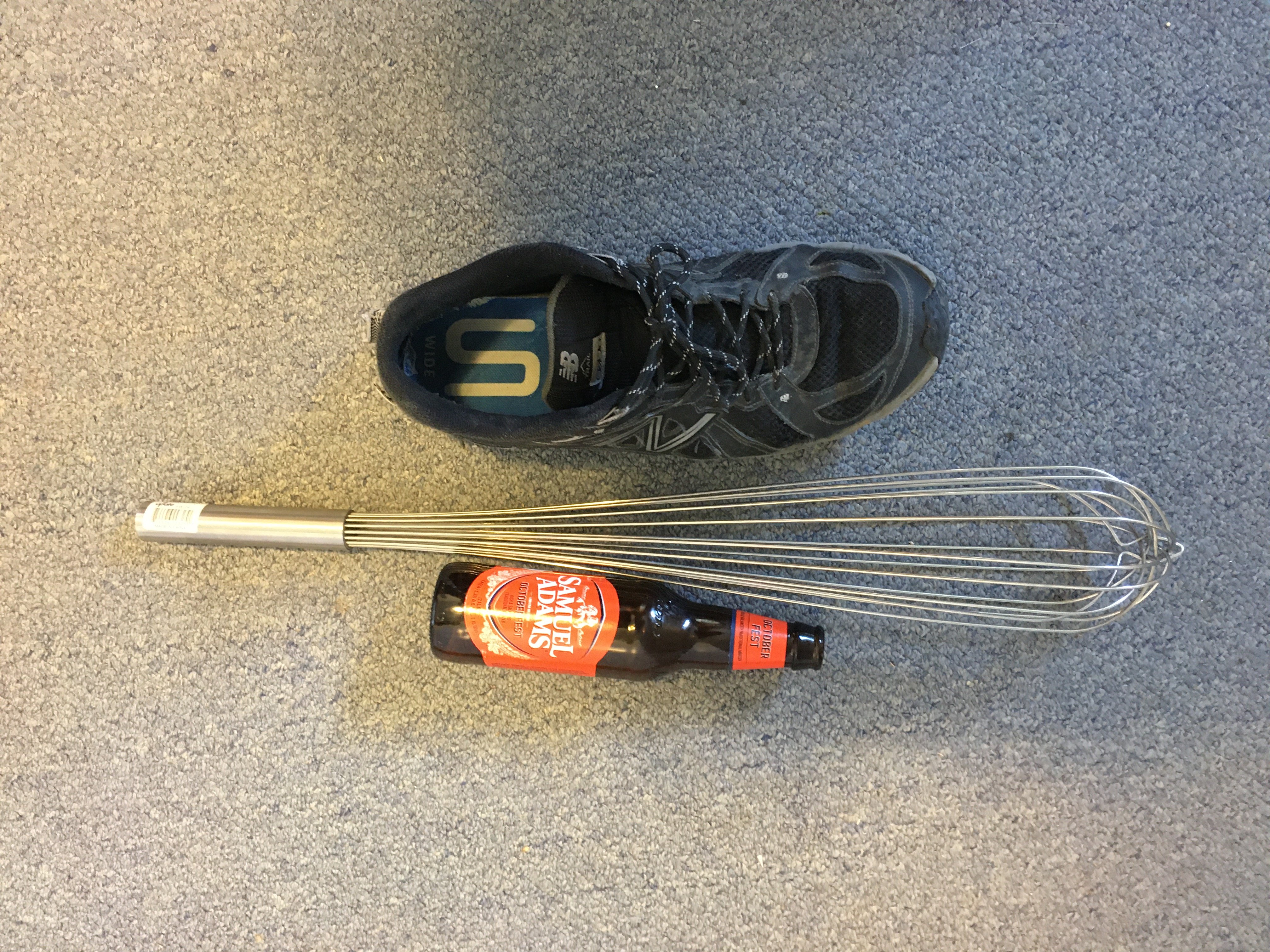Jamil Zainasheff Ordinary Bitter:
Ordinary Bitter - Brew Your Own (byo.com)
The only thing is your efficiency may be lower. So, you may end up with 4 or 4.5 gallons instead of the 5 gallons Jamil got.
Ordinary Bitter
Ordinary Bitter
(5 gallons/19 L, all-grain)
OG = 1.038 FG = 1.011
IBU = 30 SRM = 11 ABV = 3.5%
Ingredients
7.0 lb. (3.2 kg) English pale ale malt
0.50 lb. (0.23 kg) crystal malt (120 °L)
0.25 lb. (113 g) Special Roast malt (50 °L)
5.75 AAU East Kent Goldings hops (60 min.) (1.2 oz./33 g of 5% alpha acids)
2.5 AAU East Kent Goldings hops (30 min.) (0.5 oz./14 g of 5% alpha acids)
0.5 oz. (14 g) East Kent Goldings hops (1 min.)
White Labs WLP002 (English Ale) or Wyeast 1968 (London ESB) or Lallemand London ESB Ale yeast
1/2 cup corn sugar (if priming)
Step by Step
Mill the grains and dough-in at around 1 qt. of water per pound of grain (about 2.1 L/kg) and a temperature of 152 °F (67 °C). Hold the mash at 152 °F (67 °C) for 60 minutes. Infuse the mash with near boiling water while stirring to raise the temperature to mash out at 168 °F (76 °C). Sparge slowly with 170 °F (77 °C) water, collecting wort until the pre-boil kettle volume is around 5.9 gallons (22 L) and the gravity is 1.032. Boil wort for 75 minutes. Add the bittering hops with 60 minutes remaining and the flavor hops with 30 minutes left in the boil. Add 1 tsp. Irish moss with 15 minutes left in the boil and add the last hop addition just before shutting off the burner. Chill the wort to 67 °F (19 °C), pitch yeast and aerate thoroughly. Ferment around 67 °F (19 °C) until the yeast drops clear. Allow the lees to settle and the brew to mature without pressure for another two days after fermentation appears finished. Rack to a keg or bottling bucket. Target a carbonation level of 1 to 1.5 volumes. (Use about 2.0 oz./57 g of corn sugar for bottle conditioning.) If you’re cask conditioning the beer, add priming sugar, any cask finings (gelatin or isinglass), and dry hop with 0.25 to 0.5 oz. (7–14 g) of whole East Kent Goldings hops. Allow the beer to condition in the cask for several days and serve via a beer engine or by gravity feed at 50–55 °F (10–13 °C).


























![Craft A Brew - Safale BE-256 Yeast - Fermentis - Belgian Ale Dry Yeast - For Belgian & Strong Ales - Ingredients for Home Brewing - Beer Making Supplies - [3 Pack]](https://m.media-amazon.com/images/I/51bcKEwQmWL._SL500_.jpg)






















